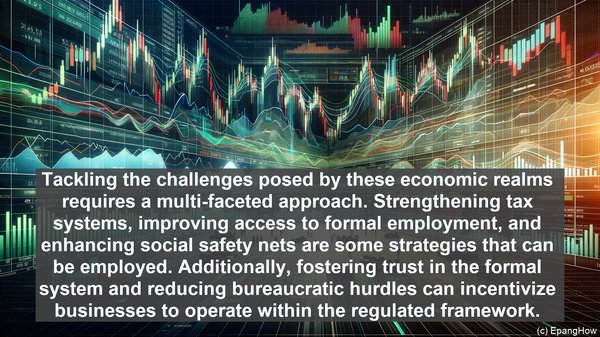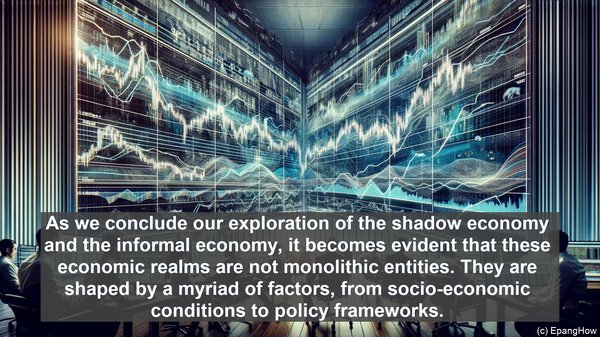Introduction: The Veiled and the Unregulated
Hello everyone! Today, we’re diving into the realms of the economy that often operate in the shadows or beyond the reach of regulations. We’ll be exploring the differences between the shadow economy and the informal economy, two terms that are sometimes used interchangeably but possess distinct characteristics.
Defining the Shadow Economy
The shadow economy, also known as the underground or parallel economy, refers to economic activities that are concealed from the authorities to avoid taxes, regulations, or both. It encompasses various activities, such as undeclared work, unregistered businesses, and illicit trade. These activities often involve cash transactions and lack transparency.
Unveiling the Informal Economy
On the other hand, the informal economy comprises economic activities that are not regulated or protected by the state. It includes both legal activities, such as small-scale businesses without formal registration, and illegal activities, like drug trade or human trafficking. Unlike the shadow economy, the informal economy may not necessarily involve tax evasion but rather operates outside the formal structures.

Distinguishing Factors
While both the shadow and informal economies operate beyond the purview of regulations, there are key distinctions. One significant factor is intent. In the shadow economy, the primary motivation is often tax evasion or regulatory avoidance. In contrast, the informal economy may arise due to limited access to formal employment or a lack of trust in the formal system.
Implications and Challenges
The prevalence of the shadow and informal economies can have far-reaching consequences. For instance, the shadow economy can lead to significant revenue losses for governments, affecting public services and infrastructure development. The informal economy, while providing livelihoods for many, can also perpetuate inequality and exploitation due to the absence of labor protections.

Addressing the Issues
Tackling the challenges posed by these economic realms requires a multi-faceted approach. Strengthening tax systems, improving access to formal employment, and enhancing social safety nets are some strategies that can be employed. Additionally, fostering trust in the formal system and reducing bureaucratic hurdles can incentivize businesses to operate within the regulated framework.
